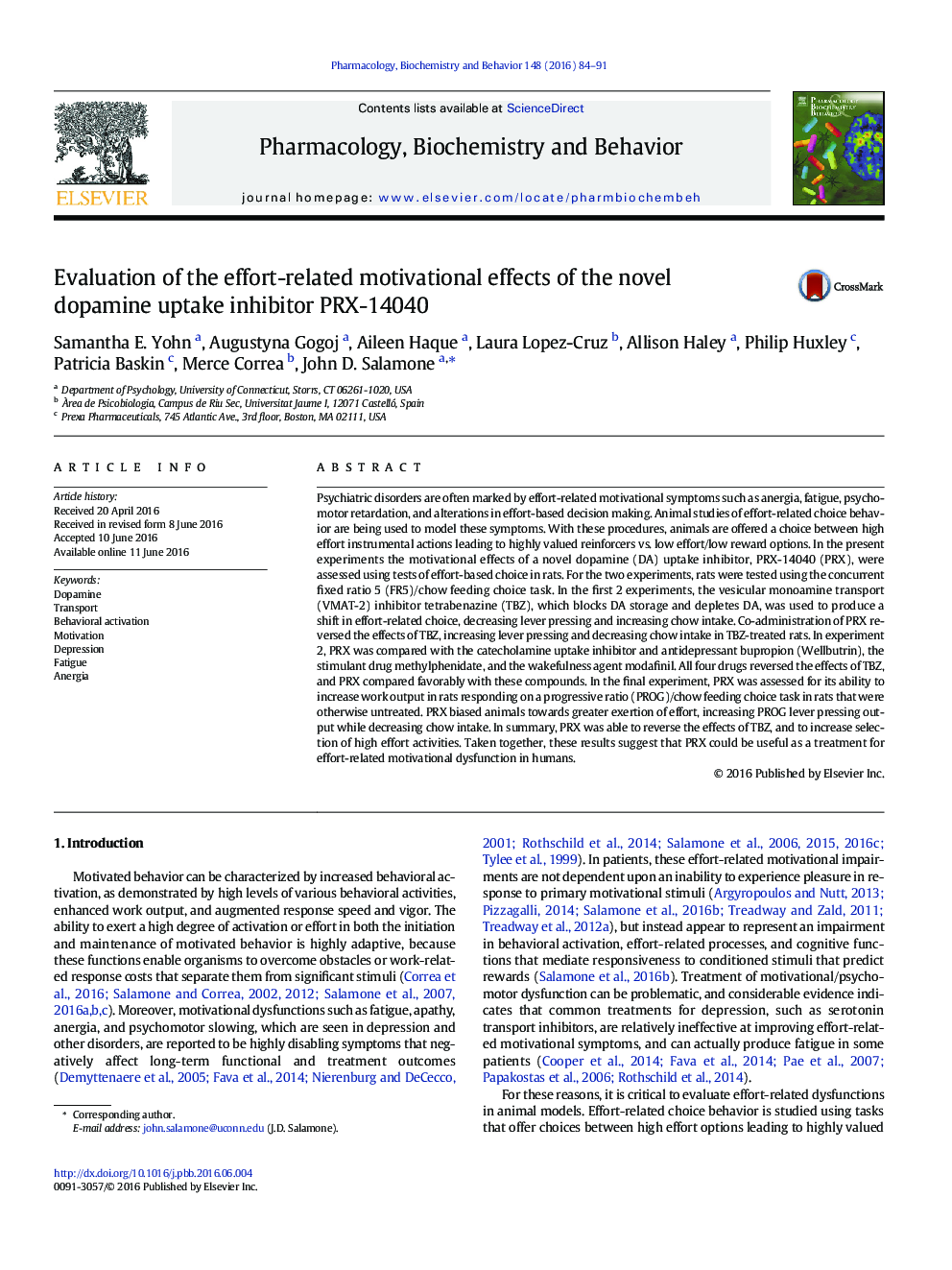| Article ID | Journal | Published Year | Pages | File Type |
|---|---|---|---|---|
| 2012653 | Pharmacology Biochemistry and Behavior | 2016 | 8 Pages |
•The VMAT-2 inhibitor tetrabenazine alters effort-related choice behavior.•PRX-14040 is a novel dopamine transport (DAT) inhibitor.•The effort-related effects of tetrabenazine were reversed by PRX-14040.•PRX-14040 increased selection of progressive ratio lever pressing vs. chow intake.•DAT blockers may be useful for treating effort-related motivational symptoms.
Psychiatric disorders are often marked by effort-related motivational symptoms such as anergia, fatigue, psychomotor retardation, and alterations in effort-based decision making. Animal studies of effort-related choice behavior are being used to model these symptoms. With these procedures, animals are offered a choice between high effort instrumental actions leading to highly valued reinforcers vs. low effort/low reward options. In the present experiments the motivational effects of a novel dopamine (DA) uptake inhibitor, PRX-14040 (PRX), were assessed using tests of effort-based choice in rats. For the two experiments, rats were tested using the concurrent fixed ratio 5 (FR5)/chow feeding choice task. In the first 2 experiments, the vesicular monoamine transport (VMAT-2) inhibitor tetrabenazine (TBZ), which blocks DA storage and depletes DA, was used to produce a shift in effort-related choice, decreasing lever pressing and increasing chow intake. Co-administration of PRX reversed the effects of TBZ, increasing lever pressing and decreasing chow intake in TBZ-treated rats. In experiment 2, PRX was compared with the catecholamine uptake inhibitor and antidepressant bupropion (Wellbutrin), the stimulant drug methylphenidate, and the wakefulness agent modafinil. All four drugs reversed the effects of TBZ, and PRX compared favorably with these compounds. In the final experiment, PRX was assessed for its ability to increase work output in rats responding on a progressive ratio (PROG)/chow feeding choice task in rats that were otherwise untreated. PRX biased animals towards greater exertion of effort, increasing PROG lever pressing output while decreasing chow intake. In summary, PRX was able to reverse the effects of TBZ, and to increase selection of high effort activities. Taken together, these results suggest that PRX could be useful as a treatment for effort-related motivational dysfunction in humans.
